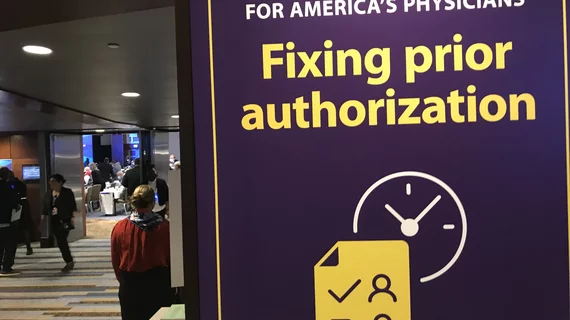Coalition seeks to simplify prior authorizations and improve Medicare Advantage coverage
A bipartisan group in Congress is pushing to pass a law that would simplify the prior authorization process for Medicare Advantage plans. The proposed law is backed by major medical groups, including the American Medical Association (AMA) and the American Hospital Association (AHA). It’s also co-sponsored by 130 members of the House and 42 senators.
The Improving Seniors’ Timely Access to Care Act’s stated aim is to improve the value of Medicare Advantage plans by forcing insurance companies to speed up prior authorization for care coverage and require them to keep records on denial rates.
Medicare Advantage plans have been plagued by uneven coverage that confuses both patients and providers, raising concerns that insurers are not following evidence-based best practices when they make decisions to deny coverage to seniors enrolled in the plans.
Further, wait times for prior authorization that care will be paid for can be extraordinary, resulting in delayed care for patients that should be covered.
The bill passed by a unanimous vote in the U.S. House of Representatives in September 2022. It has been stuck awaiting a vote in the Senate.
“Health-insurer denials must not be a mystery to patients and physicians,” AMA Trustee Marilyn J. Heine, MD, said in a statement. “Without clear information from an insurer on how a denial was determined, patients and physicians are often left to the frustrating guess work of finding a treatment covered by a health plan, resulting in delayed and disrupted care. Transparency in coverage policies needs to be a core value, an essential principle to help patients and physicians make informed choices in a more efficient health care system.”
Insurance companies argue current prior authorization practices are necessary to control costs and ration care. While the AMA agrees, the group contends the current timeframe is untenable and it’s unreasonable there is currently no requirement for insurers to provide a reason for denying care.
“To protect patient-centered care, the AMA will work to support legal consequences for insurers that harm patients by imposing obstacles and burdens that interfere with medically necessary care,” Heine added.
In its own statement, the AHA concurred.
“The AHA greatly appreciates the leadership from this bipartisan group of Senators and Representatives by reintroducing vital legislation to streamline the broken prior authorization process in the Medicare Advantage program,” Stacey Hughes, executive vice president of the AHA said. “By removing unnecessary barriers that create delays in treatment, this meaningful bill will improve access to care for seniors and allow caregivers to spend more valuable time at the bedside with patients and less time on burdensome paperwork.”
Over 380 organizations representing patients, health care providers, medical technology companies and drug manufacturers have expressed support for the Improving Seniors’ Timely Access to Care Act. The full list of backers can be found here.
The co-sponsors in Congress hope the bill will pass during this current legislative session and make its way to President Biden’s desk later this year.

